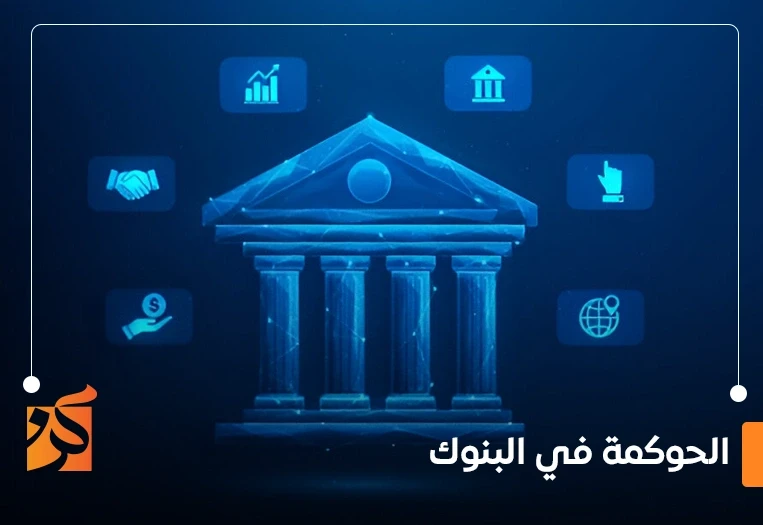
Corporate governance in the public sector has become more critical than ever, particularly with Saudi Arabia’s Vision 2030, which aims to achieve sustainable development and enhance transparency and efficiency across all government sectors. Implementing governance principles in the public sector goes beyond merely strengthening oversight and accountability; it also improves performance and fosters trust between the government and citizens.
In this article, we will explore the principles of public sector governance in depth, its types, importance, and the key governance solutions that enhance the effectiveness of the public sector. Additionally, we will address the challenges and obstacles facing the implementation of governance in the public sector and highlight the role of Be Training Academy in equipping individuals with the knowledge and skills needed to apply the best governance solutions in government institutions, aligning with Saudi Arabia’s Vision 2030.
Principles of Public Sector Governance in Saudi Arabia
Public sector governance in Saudi Arabia is a fundamental pillar that enhances government performance and ensures the achievement of the country’s developmental goals. This is driven by a set of core principles, including:
- Transparency: One of the most prominent principles, transparency ensures that information related to government decisions and operations is accessible to citizens, fostering trust between the government and the public and reflecting the state’s commitment to justice and equality.
- Accountability: This principle holds every individual in the public sector accountable for their decisions and actions based on clear and defined standards, promoting public accountability and ensuring the highest levels of performance.
- Efficiency: This principle aims to achieve government objectives using minimal resources and time, increasing the effectiveness of public services and enhancing citizen satisfaction.
- Integrity: Adhering to ethical and legal standards in all government operations enhances the state’s credibility and improves its reputation among citizens.
- Justice and Equality: Public sector governance in Saudi Arabia reflects a commitment to providing equal opportunities for all citizens without discrimination, contributing to social justice and the fair and transparent implementation of public policies.
Overall, applying these governance principles enhances the public sector’s effectiveness, improves the quality of its services, increases citizen satisfaction, and supports sustainable development in line with Saudi Arabia’s Vision 2030.
Types of Governance in the Public Sector
Having explored the principles of public sector governance, it is essential to highlight the different types of governance that contribute to improving government performance and achieving sustainable development goals. These types include:
- Institutional Governance: This focuses on building a robust organizational structure within government institutions, ensuring adherence to legal and regulatory standards governing their operations. It aims to improve internal management and provide continuous oversight of employee and departmental performance to achieve set objectives efficiently and effectively.
- Financial Governance: Financial governance seeks to enhance the management of public financial resources, ensuring fair and efficient budget allocation across various government projects. It promotes transparency in the use of public funds and meticulous monitoring of expenditures, reducing errors and increasing public trust in government performance.
- E-Governance: E-governance represents a significant step toward improving efficiency and transparency in the public sector by applying digital technology to government operations. This includes developing digital platforms to facilitate the delivery of public services and enable continuous tracNEW_VALUEg of government performance, enhancing efficiency and accessibility.
- Environmental Governance: This type focuses on adhering to environmental standards in the implementation of government projects, aiming to preserve natural resources and achieve environmental sustainability across all aspects of government initiatives, thereby improving quality of life.
- Social Governance: Social governance fosters interaction between the government and civil society, ensuring social justice. It includes providing equitable social services, ensuring equal access to rights, and involving citizens in decision-maNEW_VALUEg processes that impact their daily lives.
Overall, these diverse types of governance support the application of public sector governance principles, contributing to the realization of Saudi Arabia’s Vision 2030 in building a modern and prosperous state.
Challenges of Implementing Governance Solutions in the Public Sector
Implementing governance principles in the public sector may face challenges that hinder effective execution. Key challenges include:
- Resistance to Change: Some government institutions may encounter resistance to change from employees or individuals comfortable with the existing system and fearful of transformation. Raising awareness about the importance of governance and its benefits for institutions and employees is essential to overcome this.
- Lack of Consistent Commitment: The degree of commitment to adopting governance standards may vary among individuals in institutions. Effective governance requires a comprehensive understanding of its principles by all employees, necessitating regular training programs to enhance individual and collective adherence to governance practices.
- Corruption: Corruption negatively impacts the implementation of governance principles in the public sector. Promoting a culture of integrity and establishing strict oversight systems and effective reporting mechanisms for corruption cases are crucial to fostering a healthy work environment that upholds governance principles.
- Resource Scarcity: Limited resources, whether financial, temporal, or human, can hinder governance effectiveness. Providing adequate support and allocating necessary resources are vital to ensuring the sustainability and success of governance implementation.
- Cultural and Linguistic Differences: Such differences may lead to misunderstandings, negatively affecting the proper application of governance principles. Comprehensive training programs for all employees, regardless of their language or culture, are essential to emphasize the standards and methods to be followed.
Overall, addressing these challenges requires continuous efforts to ensure their resolution, contributing to achieving Saudi Arabia’s Vision 2030 goals and improving the public sector’s overall performance.
How Be Training Academy Can Help You
Be Training Academy is one of the leading training academies in Saudi Arabia, offering comprehensive programs aimed at developing the skills of individuals and institutions in various fields, including governance in both the public and private sectors. If you aim to understand public sector governance principles and apply them professionally, Be Training Academy is the ideal choice for several reasons, including:
- Expert Trainers: The academy boasts a team of distinguished trainers with extensive experience in governance and public administration, ensuring you learn the best practices and latest trends in the field.
- Advanced and Innovative Curricula: Be Training Academy employs modern and innovative teaching methods to deliver information interactively and effectively, clarifying concepts and enhancing practical skills.
- Affordable Training Programs: The academy is committed to providing high-quality training at reasonable prices, maNEW_VALUEg it an ideal choice for government institutions and individuals seeNEW_VALUEg to enhance their governance skills without incurring high costs.
- Continuous Support and Personalized Guidance: The academy offers ongoing support during its training programs, ensuring maximum benefit from the courses and success in applying governance principles in both public and private sectors.
- Flexible Attendance Options: Be Training Academy provides flexible attendance options for most of its training programs, whether online or in-person, helping you balance personal and professional commitments while learning.
- Tailored Programs for the Public Sector: The academy offers specialized courses designed to meet the needs of the public sector, developing the skills necessary to enhance efficiency and transparency in government institutions.
What Are You Waiting For? Start your journey toward excellence in applying public sector governance principles with Be Training Academy. Reserve your spot now and be part of the impactful change in the public sector. We are here to provide you with the latest training programs to help you enhance your skills and apply governance principles with high professionalism.











